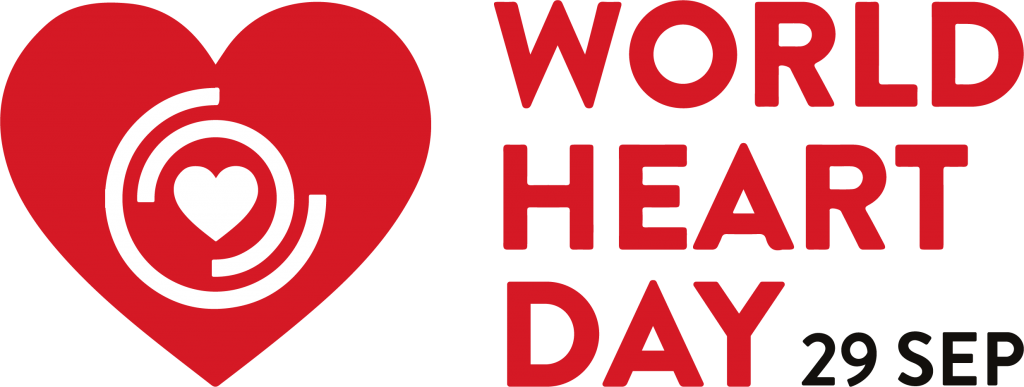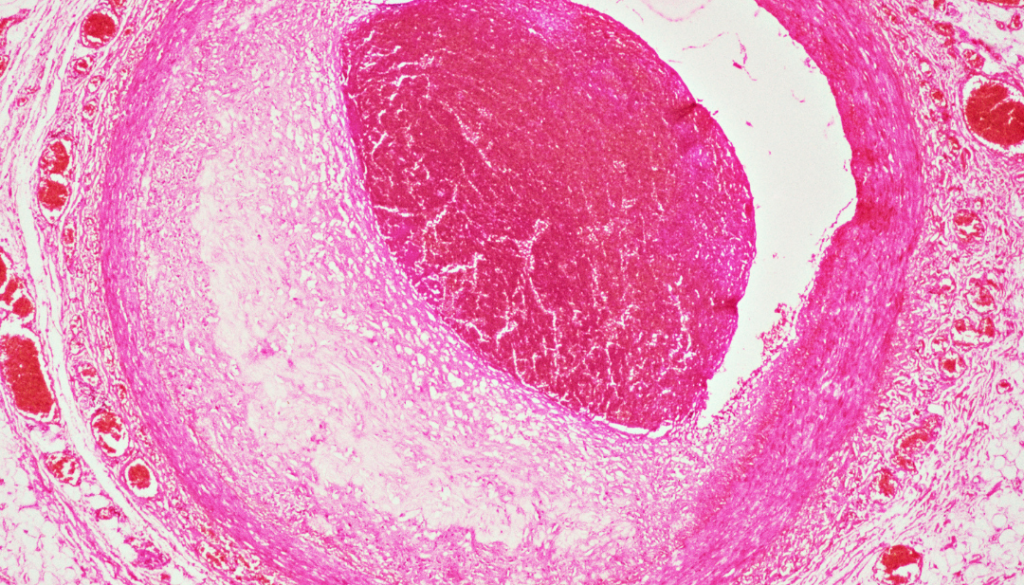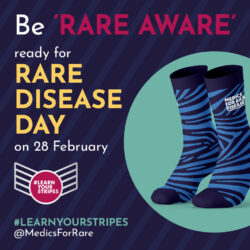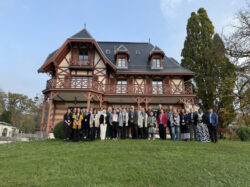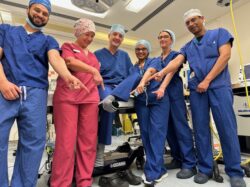Not your usual heart attack
Heart attacks may not be rare but SCAD is!
Today is World Heart Day and although heart attacks may not be rare, there are other causes of heart attacks that medics should be made aware of. In our latest podcast episode we are highlighting one such condition: Spontaneous Coronary Artery Dissection (or SCAD). You can listen here to the full interview with Dr David Adlam (Academic Cardiologist and SCAD specialist), together with Sarah Coombes and Karen Rockell from the charity BeatSCAD.

The podcast
SCAD is an under diagnosed heart condition that mainly affects young women and can be fatal. This is a prime example of a rare condition that medics and other HCPs can easily miss due to our current practice of ‘probability-based medicine’, potentially with fatal consequences. Something that M4RD is passionate about changing.
The interview gives a brief overview of what SCAD is, including a typical presentation. The panel discussed the challenges faced in diagnosing SCAD and how a misdiagnosis can be prevented. And also their hopes for the future.
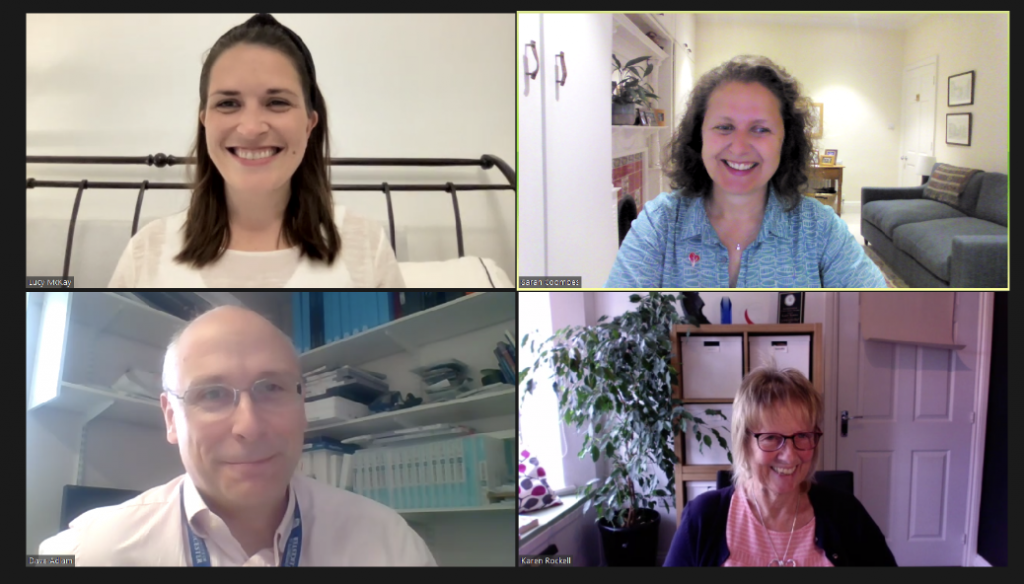
There is no such thing as a typical SCAD event
There is no such thing as a typical SCAD event. There is no such thing as a typical SCAD patient. SCAD is a relatively known condition and there are many challenges faced in diagnosing the condition. Patients presenting with SCAD are assessed by busy HCPs with ‘gatekeeper bias’ which can prevent them accessing emergency care and cardiologists. They do not look like your average patient with cardiovascular disease.
The interview included some lived patient experiences. Some were difficult to hear. But the take home message from their experiences were clear:
- Not all heart-related chest pain is atherosclerotic. Young patients without risk factors shouldn’t be dismissed.
- If you’re presented with chest pain in a patient with no risk factors for cardiovascular disease – think SCAD.
- Paramedics should treat the symptoms in front of them, not their biases.
- A&E Triage should treat the symptoms in front of them, not their biases.
- A&E Clinicians must do troponin test to ‘rule out’ heart problems.
I was lying upstairs on the bedroom floor. As the paramedic arrived he shouted up the stairs ‘Don’t worry love, you’re just having a panic attack!.
SCAD patient
How to prevent missing a diagnosis of SCAD
It was clear from the interview panel that generalists need to be supported and well connected with specialist professionals and centres. Those specialist centres need to be supported nationally with dedicated services so they can provide for patients and doctors. This will also help attract clinicians to the rare disease workforce. We understand how our hardworking paramedics, A&E doctors and nurses and GPs are under immense pressure to make quick diagnoses and management plans. But they really hold the key to help prevent missing diagnoses of SCAD and we need to help combat the ‘gatekeeper bias’ to enable these patients to access the care they need and quickly.
An unremarkable ECG result is not a watertight reason to discount cardiac symptoms. If in doubt, troponin to rule it out!
BeatSCAD
How can you suspect when someone might have a rare disease? Lesson 4 of Rare Disease 101 is all about diagnostic tools and the importance of an early and accurate diagnosis.
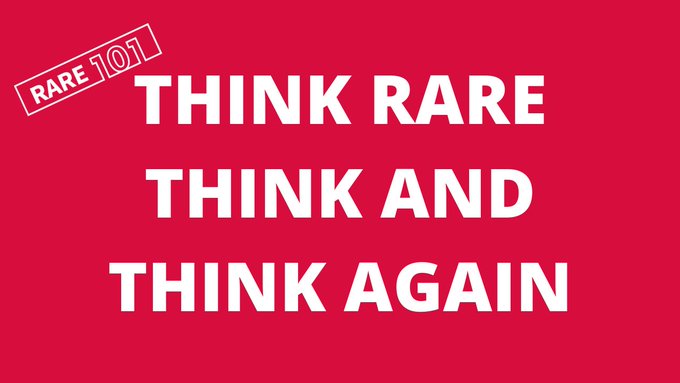
Education and awareness
Dr Dave explains that SCAD research is making progress and gaining momentum, but that the big challenge now is clinical.
To make a massive difference to this population of SCAD patients, which is not a trivial population, would require – in NHS terms – a tiny investment. I’m sure that applies to many other rare diseases too. Even if you were to impact on 100 rare diseases, setting up each clinic would require very little compared to, for example, the cost of a few nights occupancy of an ICU bed. What we do to support SCAD patients as outpatients is low cost but has a very high impact on our patient population.
Dr David Adlam
Giving hope to patients
In response to Dr Adlam’s message, BeatSCAD added that while it might be ‘a tiny investment’ it adds immeasurably to the physical and mental recovery and overall wellbeing of SCAD patients:
- It is transformative.
- It gives us hope.
- So many struggle to have their symptoms taken seriously at the onset of their heart attack, struggle to get taken to hospital, struggle to get a diagnosis and struggle to get both the acute and medium/long term care they need.
- To arrive at Dr Adlam’s outpatient clinic after all that is to be believed, understood and have your lived experience validated by a SCAD expert – in place of being told inaccurate information or nothing at all.
- It is a place where there are answers.
- A place where a woman can talk to a cardiologist about things most cardiologists can’t/won’t/don’t cover: contraception, pregnancy, HRT, migraines, associated vascular conditions like FMD, genetic implications for the family etc.
For more information about SCAD, you can visit the Beat SCAD website.
Did you know…?
- Spontaneous Coronary Artery Dissection occurs when a tear/bruise develops in one of the coronary arteries, resulting in a blockage that prevents normal blood flow, potentially causing a heart attack.
- It occurs mainly in young women although it has been reported across those aged 18-84, important sub group of women who have pregnancy related SCAD (associated with more severe presentation and worse health outcomes) and also in men too
- SCAD patients tend to have none of the traditional risk factors associated with atherosclerosis and SCAD can happen suddenly to apparently fit and healthy young people.
- It can be fatal, cause heart failure, cardiac arrest, require bypass surgery, stents, etc.
- Troponin tests are the only way to be sure you haven’t got a SCAD patient because ECGs are often unremarkable
- Triggers for SCAD – Most patients talk about having the ‘perfect storm’ of some/all of the following: emotional stress, extreme physical activity, hormonal fluctuations (often around pregnancy, peri-menopause and menopause.)
